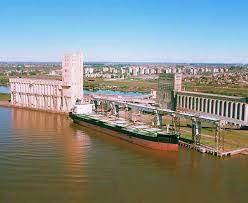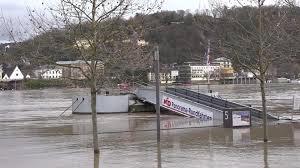A Tale of Two Rivers
|
07/20/2021 |
|
Agricultural exports from the Argentine are currently restricted by navigability on the Parana River, which leads Eastward from the port hub of Rosario to the Atlantic. Argentine is the third leading exporter of corn and the top supplier of soybean meal. About 80 percent of agricultural products pass through the port of Rosario.
Drought in Brazil has lowered the level of the river, impeding passage of bulk grain vessels. It is estimated that lack of draft has reduced loads by 10,000 to 12,000 tons per vessel. Normally Rosario has 34 feet of draft in the main channel, but depth is now reduced to 29 feet. Jan de Nul, the dedging contractor, is unable to maintain draft even though massive quantities of mud are transferred from the river bottom to wetlands resulting in environmental damage.
|

Port of Rosario Parana River |
|
 It is estimated that low water level in the Parana River has cost grain farmers and exporters $320 million over the past six months. The National Water Institute of Argentina recently reported that regional climatic trends show that the problem will persist through September of 2021 and that historic lows will be encountered in July corresponding to the last crisis in 1944. It is estimated that low water level in the Parana River has cost grain farmers and exporters $320 million over the past six months. The National Water Institute of Argentina recently reported that regional climatic trends show that the problem will persist through September of 2021 and that historic lows will be encountered in July corresponding to the last crisis in 1944.
A continent away, South Germany, Holland, and Belgium are impacted by massive ‘1,000-year’ flooding with traffic on the River Rhine closed for almost a week. Vessels have insufficient headspace to pass under bridges. The Rhine is a critical artery shipping raw materials, petroleum products, and feed ingredients with facilities in landlocked Switzerland affected.
The U.S. poultry industry along with other crop and livestock producers rely on the Mississippi and other major waterways. Obsolete locks, accumulated silt and structurally unsound bridges represent choke points to efficient transport. Passage of the infrastructure initiative will permit allocation of funds to repair and restoration of our vital river transport network.
|

|
|
|